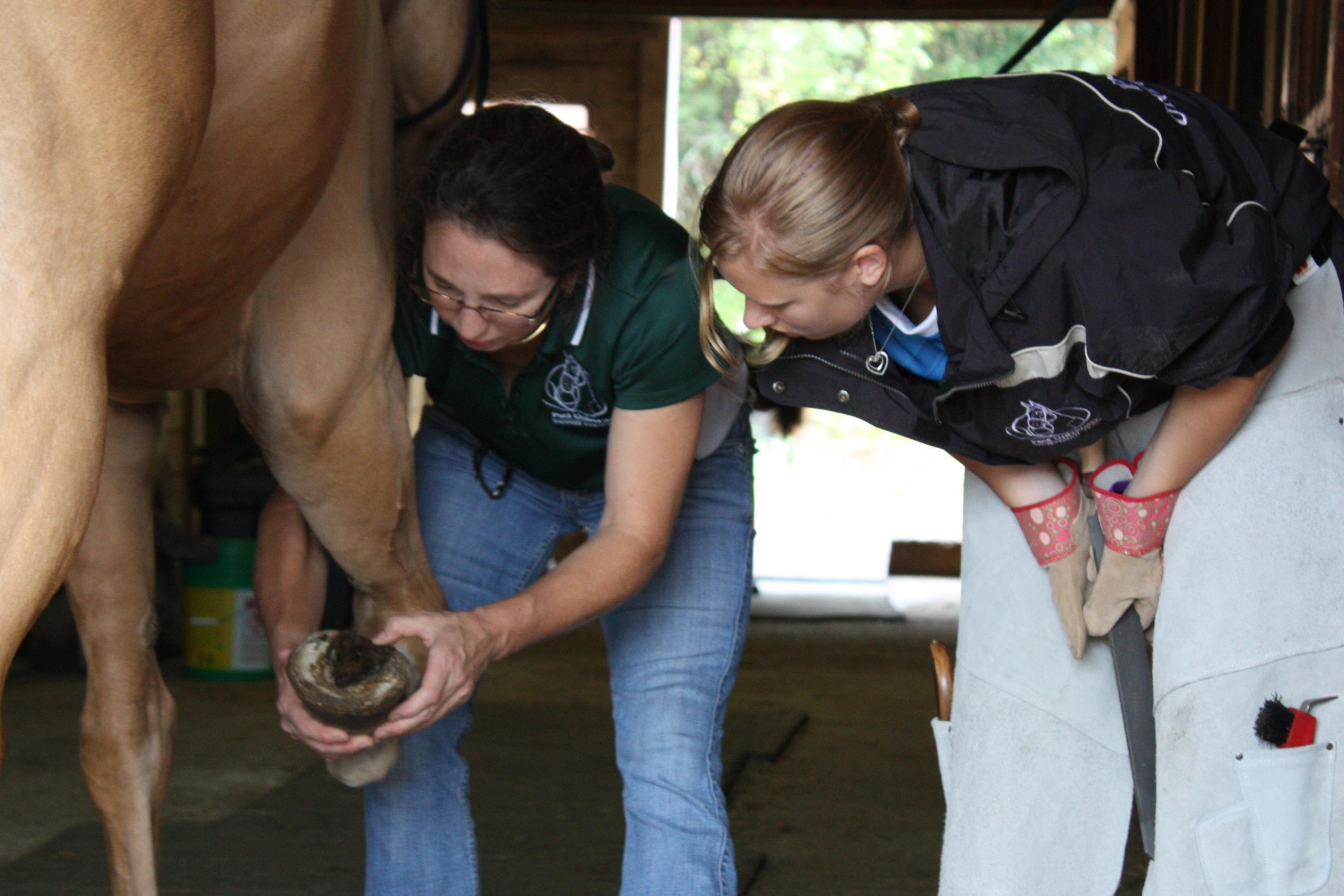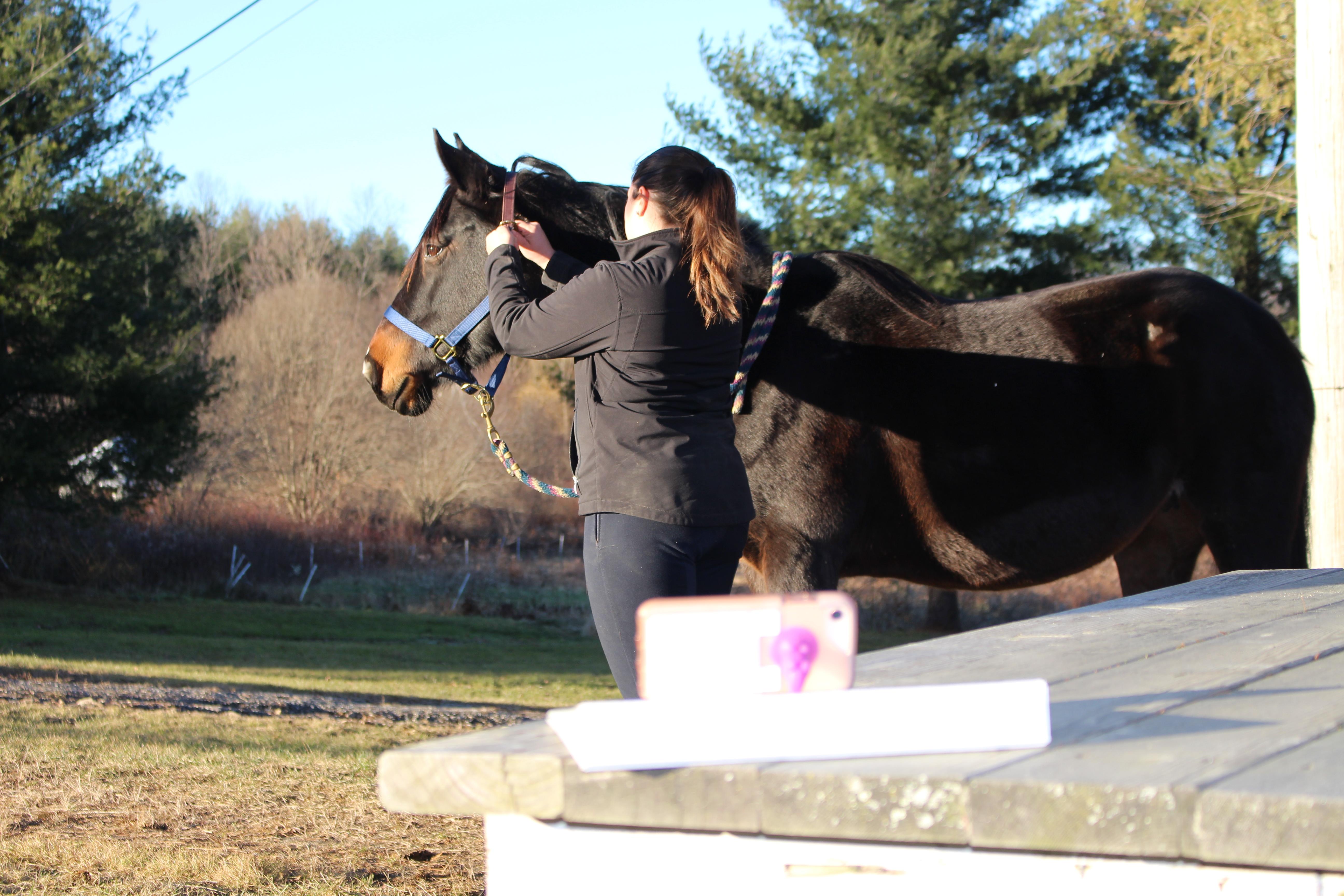
Post University to Offer First Online Equine Studies Degree
Is the internet the way of the future? Post University, based in Waterbury, Connecticut, has launched the first-ever equine studies degree program… available online. Noelle Maxwell catches up with program head Abigail Nemec to learn more.
Post University, a for-profit college based in Waterbury, Connecticut, is introducing the first online bachelor’s degree in equine studies. Headed by Abigail Nemec, M. Ed. a practicing farrier and level III American Riding Instructors’ Association instructor who has been at Post for 10 years, the program offers two concentrations: interdisciplinary and equine business management.
Post has offered a campus equine program for over 40 years and has offered a bachelor’s within the program since the early 1980s. The campus program currently offers a bachelor’s in equine studies with concentrations in equine business management, equestrian coaching, interdisciplinary, and equine wellness. As described on Post’s website, the interdisciplinary program “allows students to customize their concentration on areas that interest them the most.”
Students aren’t required to own a horse to enroll in the program; however, they’ll need access to a horse and farm for certain courses, such as EQU 165 (Equine Care & Management) and EQU 166 (Facility Design & Operations). The program takes an “evidence-based” approach to learning, where topics are taught via demonstration.
In on-campus courses, “evidence-based” means the instructor demonstrates a task, and students practice the task following the demonstration. The same principle applies online, with a video replacing the instructor’s demonstration, and students filming themselves practicing the task and uploading it for a grade. In a course such as stable management, the online course would require students to complete barn tours where they ask questions and complete survey for a grade. Courses will use a variety of resources ranging from eBooks to articles written by the university’s own experts.
Nemec emphasized that online courses aren’t “a perfect substitute for the instructor putting their hands on your hands and saying, ‘this is how it’s done;’ hands-on instruction can’t be replaced.” She believes there’s still a place for campus-based education. Nemec’s belief is that the online program provides an opportunity for those already in the industry to hone their skills and go beyond the basics of the degree and get into deeper, more complex work that builds upon those basics.
Per Nemec, the online program is ideal for students seeking opportunities to change, grow, or find that next step in their career; for example, someone in the industry who wants to move into a more peripheral role or leave the industry. She said the business program, offering courses in marketing and management, could be helpful; she’s seen business owners who struggle or plateau due to lack of knowledge on how to build on and work with what they have. She added that the industry is more than just the people in the barns: “it’s huge and encompasses beyond those who work directly with the horses; sometimes people don’t look beyond that and then they do and want opportunities where they can use their knowledge and experience in another part of the industry.”
As for career opportunities, Nemec said it’s difficult for her to say there are “places starving for people,” and that she isn’t “looking for the jobs seeking large numbers to fill them and then looking for graduates to push into those jobs,” but that she looks at what students want, what inspires them, where they want to go, and looks for ways to help them turn their passion into a career. She believes that “anything that can be done in the big wide world can be done in the horse industry,” and that the industry is “still robust even though it’s struggled over the past decade or so due to the economy.”
She added that “people who are concerned (about career opportunities) may be seeing shifts in technology and the economy, but don’t look at the big numbers we have; there are still many horses and equestrians out there, people are still looking to ride, show, and be competitive, horses still need care, there are lots things to drive businesses.” Graduates from the campus program have worked in barn and facility management, marketing, customer service, accounting, and as veterinary assistants.
Post’s program is unique because it’s small, tight-knit, and flexible. Students know each other well and work within the larger community, and, said Nemec, “they build a great professional network; they have a network in place when they graduate.” The flexibility allows students to specialize in what they want – they choose courses in collaboration with advisors and instructors, they develop a career plan and independent study and senior projects, they take what’s learned, put it together in a way that’s meaningful, and apply it to their work experience.
Online, the program can be wherever the student is; Nemec has talked to many who wanted to enter the campus program, but couldn’t relocate due to jobs, horses, farms, family obligations etc. Online courses do have drawbacks; there’s no external structure of having to be at a class at a set time, nor is there real-time interaction with instructors (Post students can request synchronous time with instructors via video chat). Those who desire real-time instruction may wish to consider a campus setting.
Nemec is excited and considers this program a “game-changer” for equestrian education. Post had discussed creating an online equine program for years, but Nemec put her foot down until technology evolved to allow inclusion of hands-on courses, as she felt they were vital.
Post’s estimated tuition for an online bachelor’s degree is $69,400 total for full-time enrollment at six credit hours per term, six terms per year. One year’s tuition is estimated at $13,880. The cost per credit hour is $570.










Leave a Comment